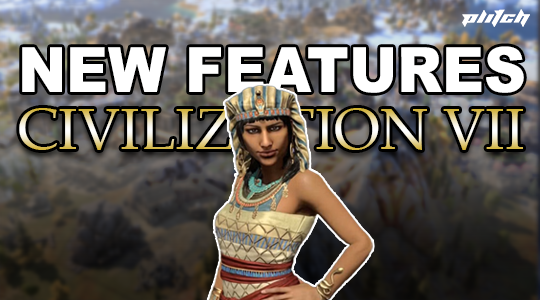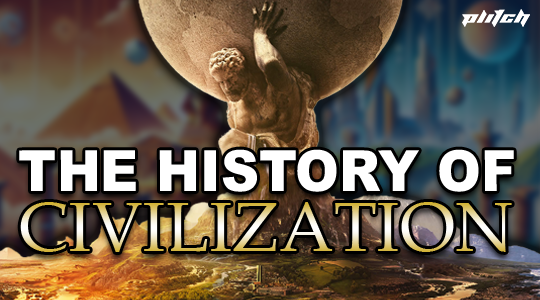The most entertaining historical sandbox enters its seventh round. This time, the changes from the previous game are more profound than ever. Our Civilization 7 Tips and Tricks explain how to navigate the three ages best and build your empire for victory.
Table of Contents
1) Start in the Antiquity
Civ VII breaks new ground with its Ages mechanic. It divides each campaign into three parts, each presenting different challenges. You begin in the Antiquity, where you build your first civilization. Your goal is to build an agricultural society and expand your settlements.
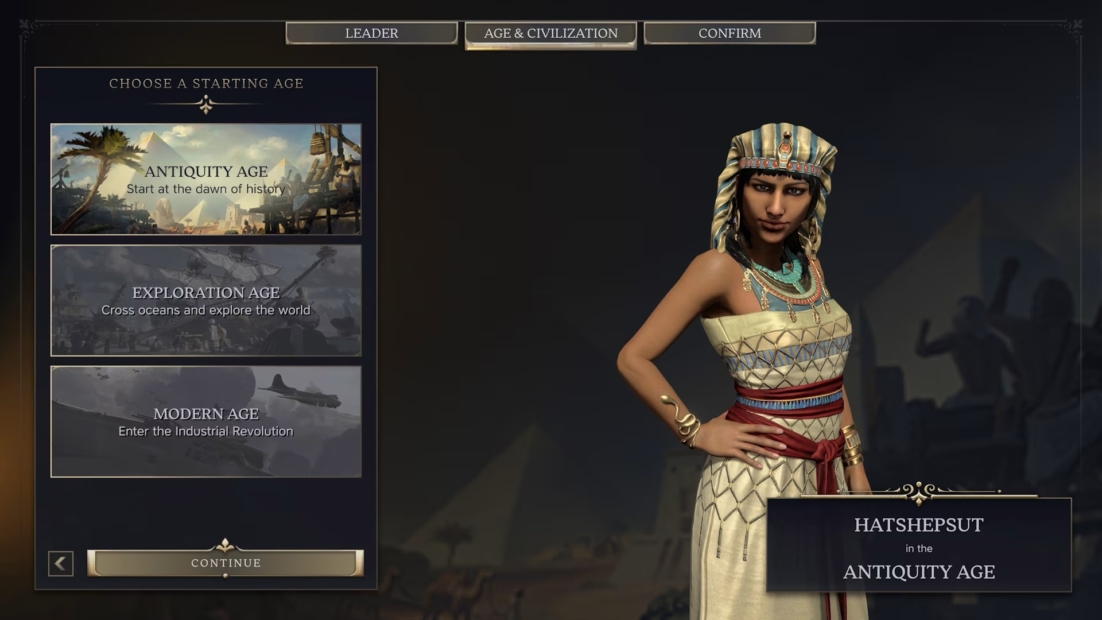
Your first settler in Civilization 7 will be able to build a city. This is different for all other settlers. You don’t create a city directly, but only a town. You can still ignore religion in the Antiquity. It only becomes relevant in the second age. However, we recommend that you start in the Antiquity to get to know the game mechanics.
💡Tip: This article tells you everything you need to know about the new features of Civ 7!
2) Choose the right starting location
The location of the first town you found with your first unit is critical in Civilization 7 and will affect the rest of the game. Be sure to activate the display of resources and income for each region. This can be found in the decorations section on the left side of the screen.
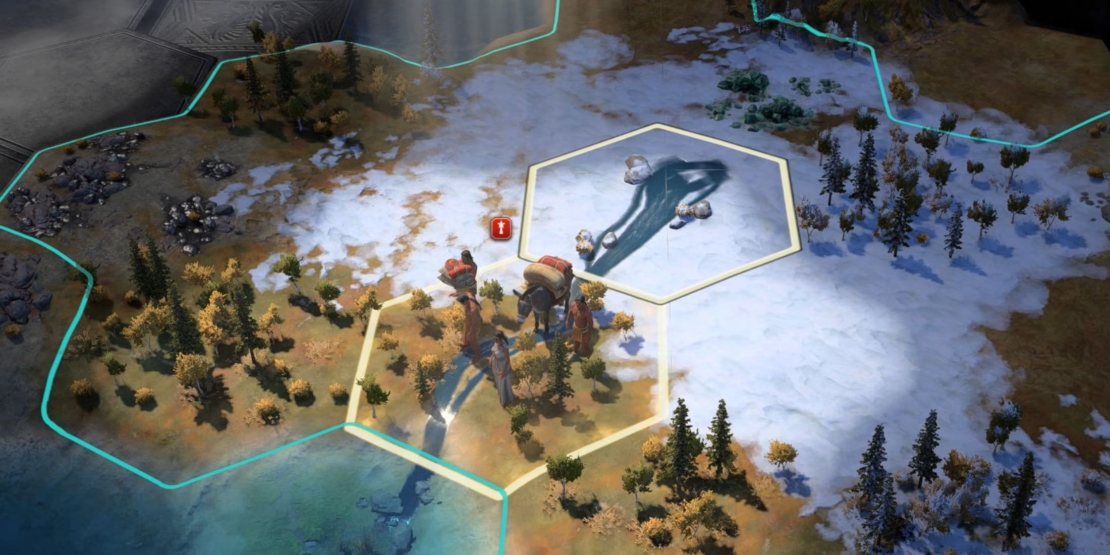
Since a city can only expand over three tiles, you should look for a location where your city can access resources within that radius. In the first few rounds, the most important thing is to grow your population. So, focusing on food and cotton rather than gold and silver is better.
Another crucial factor for your success in Civilization 7 is proximity to water. Freshwater increases the happiness of your people. You’ll also travel by sea later, so a connection to the coast or rivers is always advantageous. Finally, environmental factors and terrain should be considered when choosing a location.
3) Civilization 7 tips for towns and cities
Towns aren’t yet able to build buildings in Civ 7. In addition, they only produce gold at first. However, you shouldn’t convert towns to cities too early. Wait until they have about 15 inhabitants. This is because their growth is better than that of cities, so they are more likely to get valuable resources.
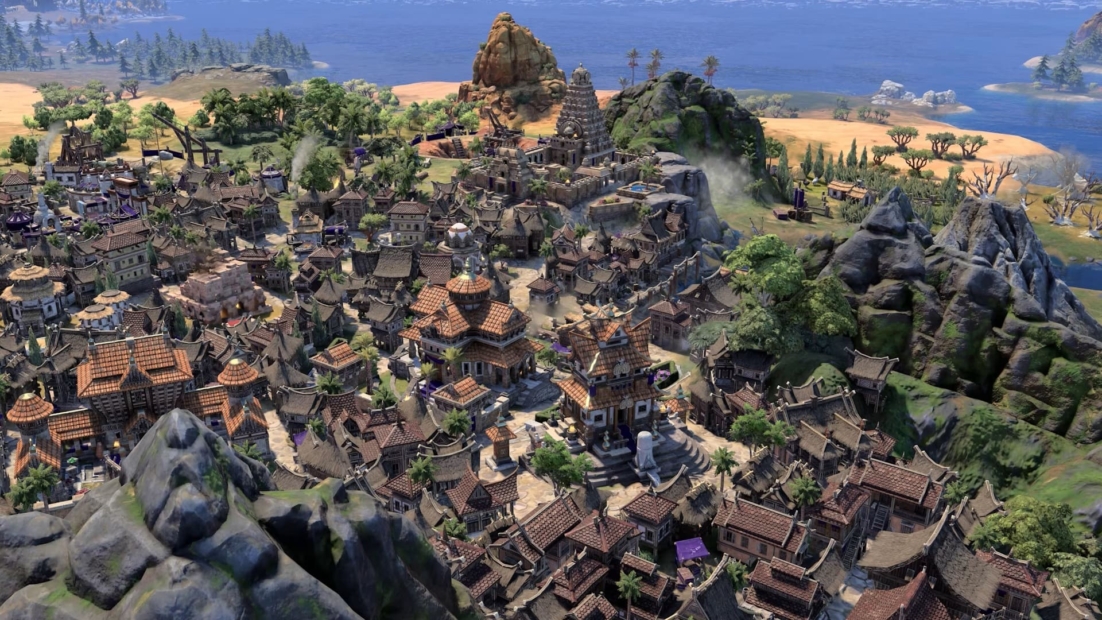
You should also specialize some of your communities. This will give you bonuses and ensure that you have a good supply. To keep your economy in a healthy balance, we recommend that you always have as many towns as cities. By the way, the conversion cost depends on the number of inhabitants. The larger the population of your town, the cheaper it is to upgrade to a city.
However, one thing to keep in mind is that the more cities you have in your empire, the more expensive the conversion will be. The amount is limited to 1,000 gold pieces.
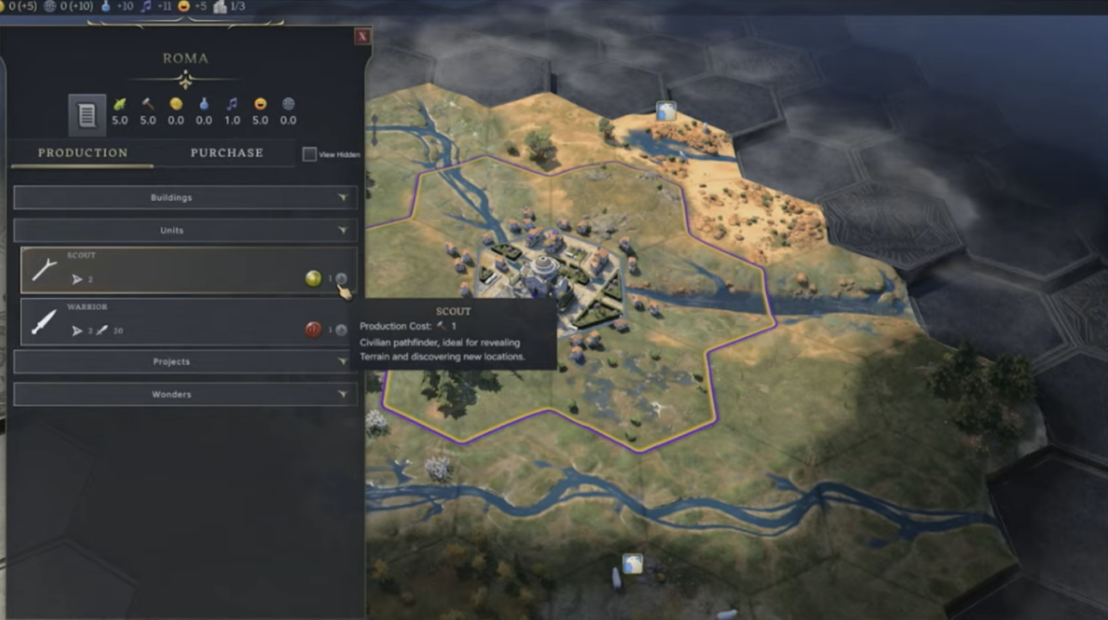
4) Get a scout first
There is a strategy popular among Civ 7 fans that will set you up well, especially in the first ten rounds. Make sure you spend as little time as possible deploying a scout and then send one of them into production. As soon as he’s available, activate the search function and let him explore a large area.
The advantage is that you can make discoveries in the fog of war and have them highlighted. This lets you identify other civilizations and find valuable warehouses early in the game. If your production allows, you can also use several scouts to gather information about the world quickly.
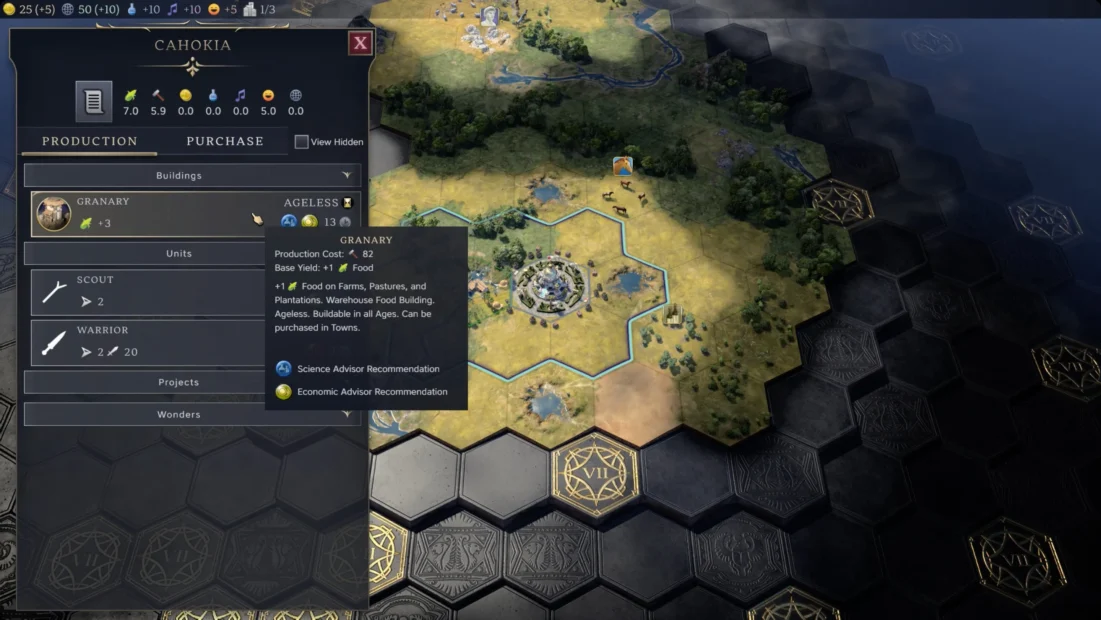
5) Build a granary first
You’ll need to build a building immediately after researching your first technology and training a unit. We recommend that you choose a granary, which is the foundation for the growth of your population.
It doesn’t matter if you place it right in the center of your city or next to it. Building it near a navigable river on a light green square is best. If you choose Egypt as your starting civilization in Civ VII, you’ll even get a bonus for the water connection.
6) Age transitions
Since the three ages are a new mechanic, we’ll cover them in more detail in our Civilization 7 tips and tricks. As mentioned before, you should start in the Antiquity age. This will help you learn the game’s basics and allow you to transfer your legacies to the next age.
From the Antiquity, you’ll move on to the Exploration Era. Here, your task is to discover foreign cultures and satisfy the needs of your people with exotic imports. The third age is the Modern Age, where you’ll lead your civilization to prosperity, resolve global conflicts, and achieve great technological feats.
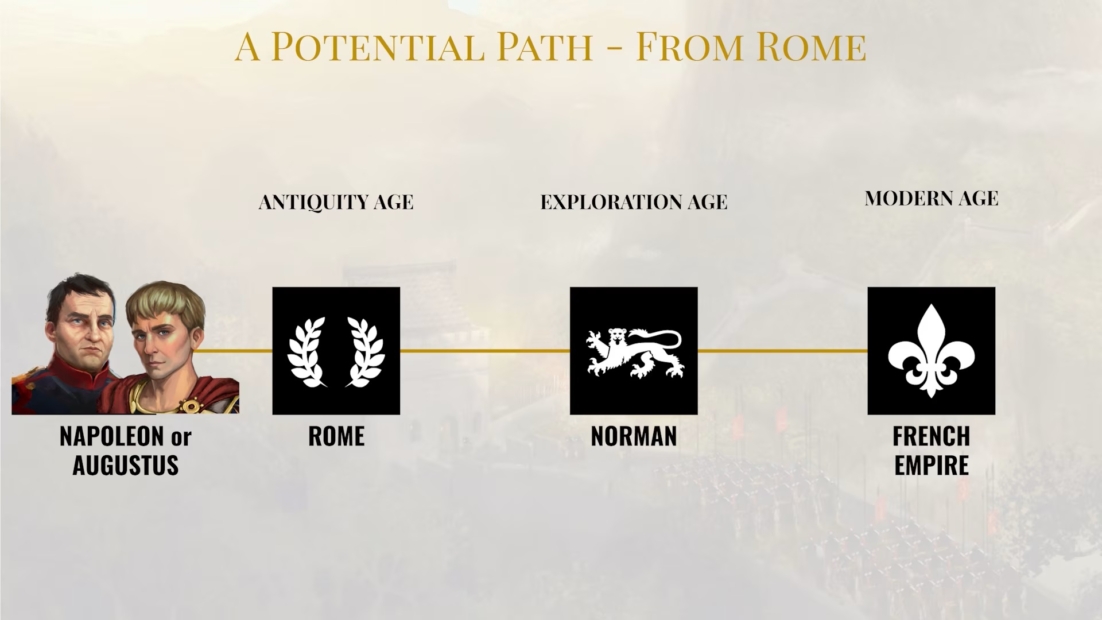
At the top left of the screen, you can see how far along you are in the current age and when a transition will occur. A catastrophe accompanies each transition. For example, this could be a plague or an invasion by enemy hordes. Catastrophes can also be disabled in the game options.
You must choose a new civilization at the beginning of a new age in Civilization 7. Any building without a timeless marker loses its bonuses, and all ongoing wars and alliances are ended. All cities except your old and new capitals are downgraded to towns, and all units are upgraded to the base level of the current age.
7) How to grow your empire
Healthy growth, not too fast but not too slow, is the key to victory in Civ 7. Expand your first city into adjacent tiles to reach its maximum size and make improvements. As a newcomer to the Civ series, your advisor’s suggestions will be a good compass when you can’t decide.
Don’t be afraid to use the text pop-ups to make choices that suit your play style or the direction of your empire. There are no wrong choices, but it’s best to stay true to your convictions.
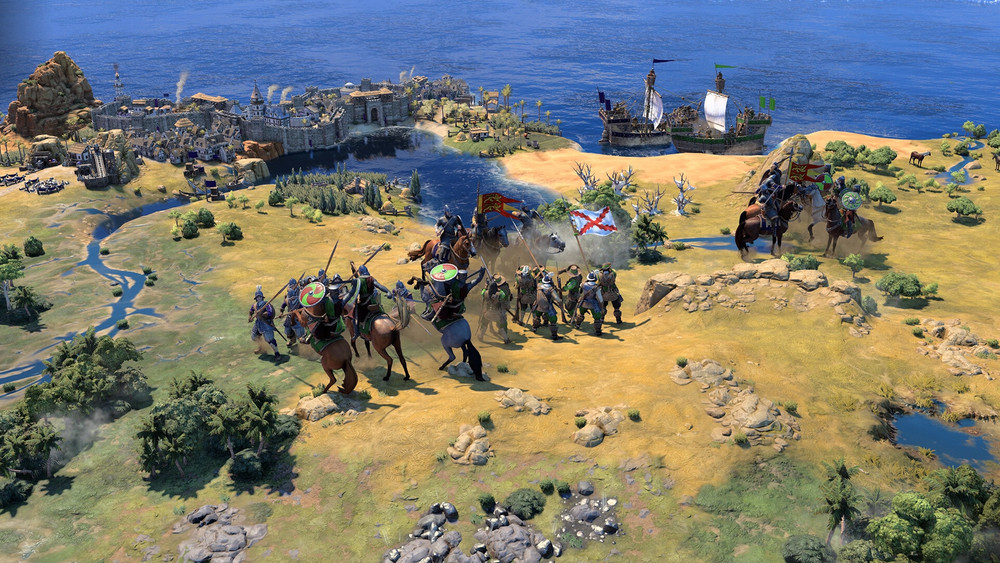
In the second age, spread your religion worldwide—research piety to build temples and then train missionaries. Constantly establish new communities and develop half into cities, while the others specialize in specific resources.
For example, in communities with water nearby, promote agriculture for food. And in places with silver or gold mines, you can build mining settlements. As your empire in Civilization 7 grows, your borders expand, allowing you to claim new territories.
If your scouts encounter enemies, you can order them to turn back. They usually have no problem fleeing from enemy forces. Place specialists on existing fields in your settlements and receive various bonuses. Be aware that they will cost you food and happiness.
8) Repair buildings
Environmental events such as floods, storms, and looting can damage your buildings in Civilization 7. If you discover a damaged building, you should repair it. This can be done either through production or with gold. We recommend that you do it with gold. It’s faster, and you can repair multiple damages at once.
9) Combat tips
Even if you want to play as a peaceful ruler, you should know how battles work in Civ 7. Military conflicts can’t always be avoided, so you must defend yourself if necessary. Thanks to the three ages, only units from the same age will face each other in war. In previous installments of the series, it wasn’t uncommon for medieval knights to fight modern soldiers.
Another important new element is the changed use of resources: Instead of being used for production, strategic resources are now used to increase combat power. Each available resource unit increases the strength of the corresponding military units by one point, up to a maximum of six.
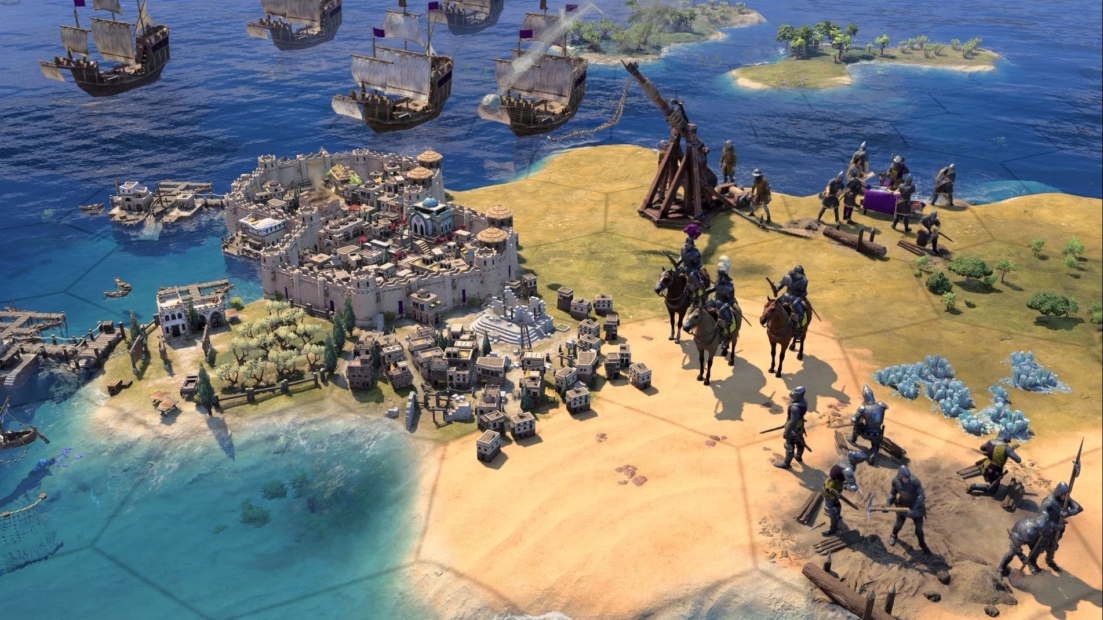
The war support system also affects your combat power. When you declare war, both you and your opponent start from zero. This balance can be shifted using influence points. Positive values on one side automatically mean negative values on the other. You can get additional support points from miracles, leader abilities, or mementos.
The flanking system is also new. An initial melee attack binds the enemy unit, causing subsequent attacks to deal increased damage. This tactic is only available after researching military training.
Prepare for major wars by stockpiling the necessary resources. You don’t have to mine them all yourself; you can buy them from the trade menu. You should also make some preparations in terms of technology and develop military achievements.
You need to keep an eye on war fatigue. It directly affects the happiness of your people and can reduce your military strength. It’s essential to build support for the war separately for each conflict. If you have several enemies, you must win over the people for each of them.
10) Resource allocation
In Civilization 7, there are four different types of resources that you should manage well. City resources (as the name suggests) can only be allocated to cities, not towns. On the other hand, bonus resources can be allocated regardless of the rank of your settlement. The game automatically allocates empire resources.
They apply to your entire territory. Your factory resources are what you need to achieve economic victory. You only have access to them in the modern era. As the name suggests, you can only send them where there is a factory.
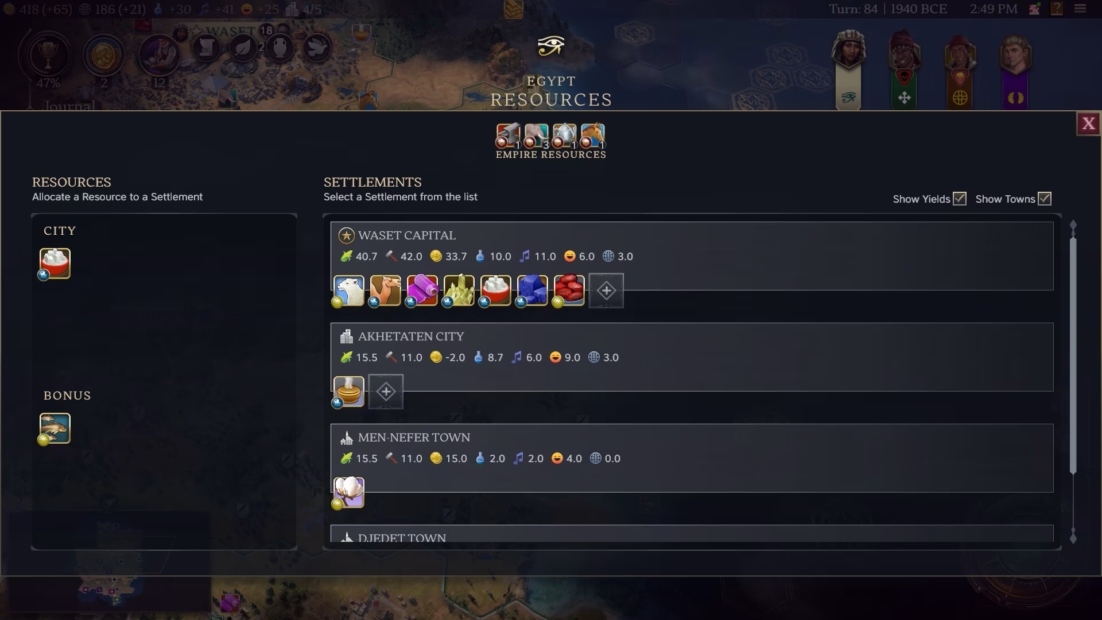
You can only allocate one type of factory resource per settlement. Once it’s in place, you fill the remaining slots with the same type, thereby specializing the town or city. Resource bonuses are also stackable, so you can use stacks to increase your total bonuses significantly.
You can redistribute your resources if you’ve built a factory or mined a resource in the current turn. The latter can be done either through independent mining or through trade. Send your production resources to the regions where the military is trained, or wonders are built.
11) Beware of hostile independents
Depending on the difficulty level you are playing at, hostile independents can be aggressive. If there are several of them near your starting area, you should invest in a good military early on.
Not all free city-states are hostile to you. Some of them will view you positively. You can also influence the attitude of hostile powers. Make friends with them by investing 170 influence points in the diplomacy system.
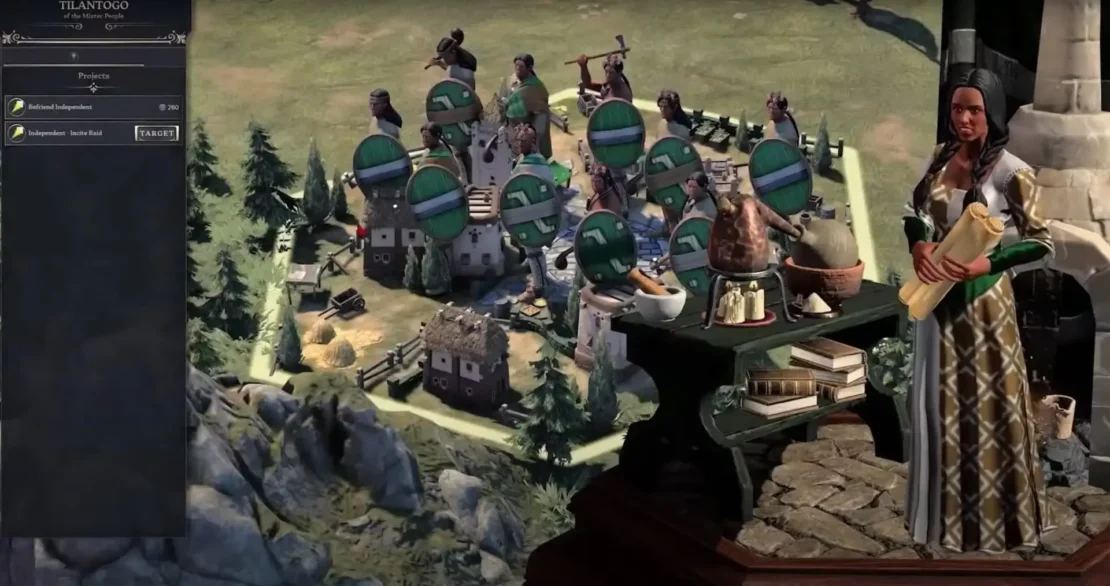
This will increase your presence on the map and is usually more advantageous than investing your influence in cooperation with other empires. By the way, next to the name of the city-state, you can see whether it is an economic, scientific, or other power.
When you enter a new age, the previous city-states will be removed. In their place, new independent powers will appear, with which you’ll have to establish diplomatic relations or defend yourself against them.
Build your empire with PLITCH!
Our Civilization 7 tips and tricks will get you through your first campaign. If you need more help or want to customize your game, PLITCH’s Civilization 7 cheats are the way to go. You can use them to make your game easier or harder.
Increase or decrease your influence or the amount of gold you have. Give your units unlimited attacks and infinite health, or change their experience levels. You can also customize research and culture bonuses.
Check out this blog and our YouTube channel to learn more about PLTCH!
Happy Gaming!
